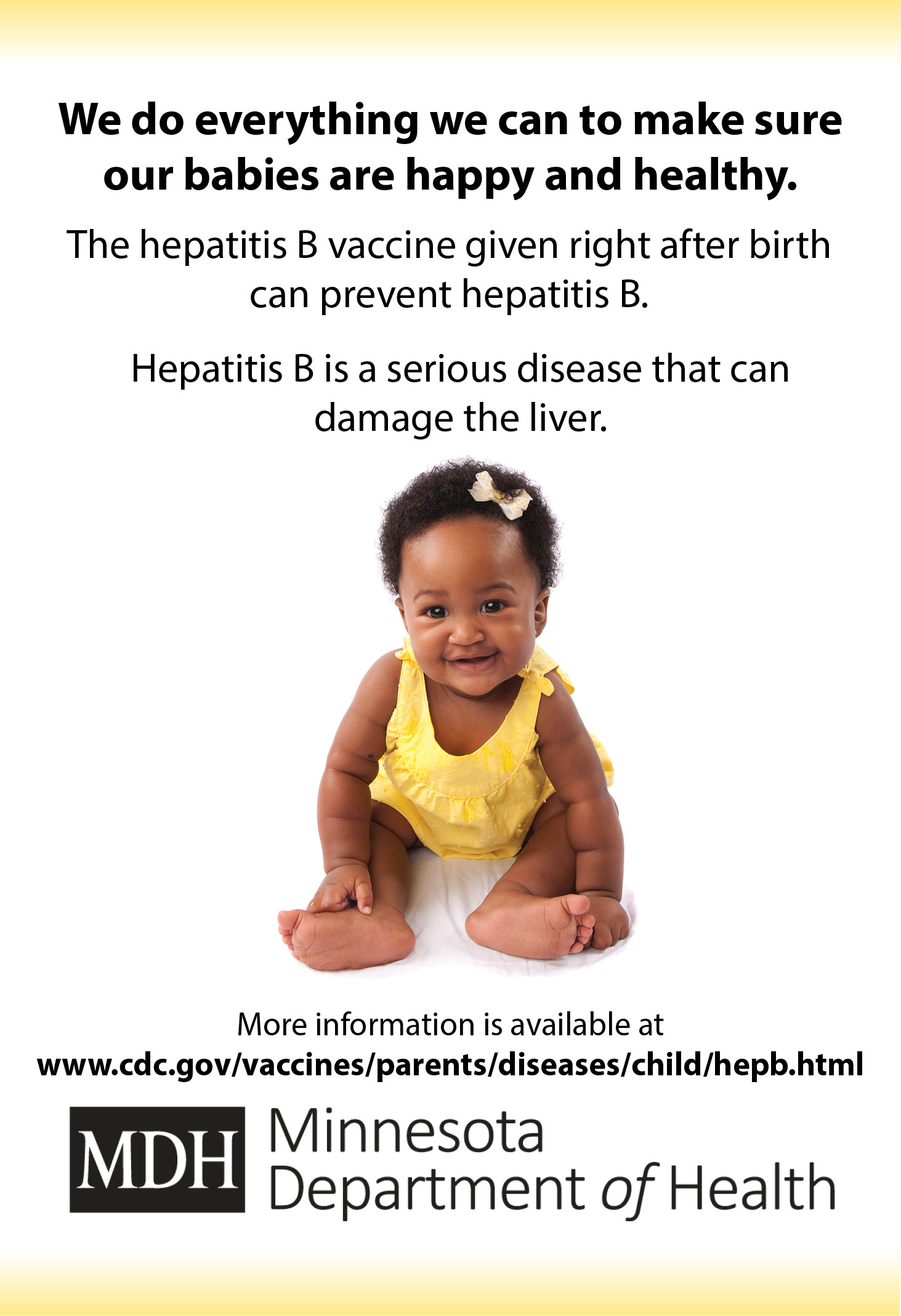

Hepatitis B and hepatitis C are silent infections that can cause serious liver disease. Many Minnesotans are living with hepatitis B or hepatitis C and don’t know it. Do you know? Without knowing if you are infected, you cannot receive lifesaving care and treatment. Talk to your doctor about getting tested so you can get the care you need.
More about Hepatitis B and Hepatitis C
Both hepatitis B and hepatitis C are caused by different viruses and attack the liver.
• Hepatitis B is found in the blood and in certain body fluids. Hepatitis B is more common worldwide; about 350 million people in the world have hepatitis B.
• Hepatitis C can also be found in the blood. It is less common worldwide; about 150 million people in the world have hepatitis C.
How is hepatitis spread?
Hepatitis B and C are spread by exposure to the blood or body fluids of an infected person.
• Hepatitis B is spread by sex and blood exposure such as sharing needles, razors, or anything sharp that may have blood on it. Hepatitis B can also be spread from mother to baby during birth.
• Hepatitis C is mainly spread through blood exposure such as sharing needles, razors, or anything sharp that may have blood on it.
Symptoms of hepatitis
A newly infected person may not feel sick and never realize that they have been infected. Sometimes people may become sick. Symptoms of hepatitis may include:
• nausea
• loss of appetite
• fever
• vomiting
• jaundice (a yellowing of the skin or eyes)
• abdominal pain or bloating
Sometimes the infection continues for years without signs of illness. This is why they are called silent infections. Because hepatitis viruses attack the liver, after many years the infection can cause liver disease or cancer. This is why you should get tested.
Preventing Hepatitis B
There are some things you can do to protect yourself and your family from getting infected. There is a vaccine to prevent hepatitis B. All babies should get the hepatitis B vaccination right after they are born. People who have not been vaccinated against hepatitis B should be tested and if not infected, get vaccinated.
Pregnant women are tested for hepatitis B by their healthcare provider. If a pregnant woman has hepatitis B, in addition to the hepatitis B vaccine, your baby will get medication to protect against hepatitis B. Babies born to mothers who have hepatitis B need all their hepatitis B vaccine doses and should get tested after the final dose to make sure the vaccine worked.
Preventing Hepatitis C
Unfortunately, there is no vaccine for preventing hepatitis C. If you or a family member is infected, talk with your doctor about ways to keep your family healthy. If you live with someone who has hepatitis C, don’t share objects that could pass blood from one person to another (like razors, needles or toothbrushes).
Treatment
There are treatments for hepatitis B and C that can help your liver stay healthy. See a doctor regularly.
For more information about hepatitis B and hepatitis C, talk to your doctor. You can also find information at the Minnesota Department of Health website at www.health.state.mn.us/hepatitis.








